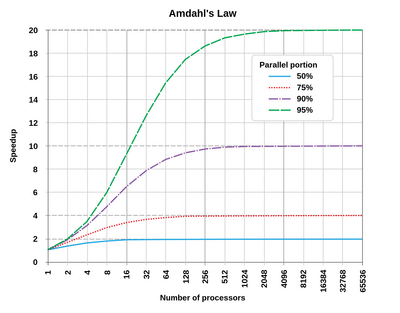(sorry long-reply, but it's effort to condense!)
commodification of complement: when a company starts out w ~monopoly on a tech-category X, so they try to develop popular *open source* things that depend *specifically* on X, such that anyone who tries to develop a competitor version of X have to start from near the bottom of the tech tree. if things are opensource, they mobilise enthusiastic community efforts to proliferate variations of it too, thereby locking in X's advantage.
@niplav eg every popular programming language ever, intentionally or not, remain popular by virtue of being commoditised complements. i speculate that people have already invented many alternative langs that are objectively better than popular langs (eg JS) for many tasks, but there's enormous inertia to switching (aka refactoring) everything to use the better lang.
@niplav happens with cultures too. there are many norms for which there exists alternative norms that would be globally more-optimal to adopt. if you switch alone, your behaviour is incompatible w those who now punish you for deviating; you switching successfwly depends on all the people who would punish you for it. it was possible to switch early on, when this norm was only shared among a handfwl of people. but coordinating all the people to switch all at once is very costly.
@niplav coordination problems aren't the same as tech-tree dependency, but the switching-cost dynamic & path-dependency makes it a very metaphorical thing—solutions may generalise from one to the other.
manyfolk are annoyed at imprecise metaphors, but they're usefwl as long as you're aware of the imprecision. it's not just that solutions generalise, it's that *finding* solutions to either is easier when you have a generalised understanding of the problem-structure too.
@rime I think I sort of get it? Commoditized complement is a weaponized Nash equilibrium upstream
@niplav Yess! I actually considered using the exact phrase "weaponized Nash equilibrium" or "weaponized switching-costs" but didn't wish to exceed my verbosity-allowance.
@niplav Related: "Nash-attacks". Borrowing cousin_it's example:
> "let's say Alice has the option of cooking a pie, but must share half of it with Bob. So Alice cooks the pie and everyone is happy. Now let's give Bob the option of stealing the whole pie and frustrating Alice. Then Alice won't cook the pie because she will anticipate that Bob's optimal decision would leave her without pie and frustrate her, so everyone is worse off."
@niplav I swear if the academics discovered what I've irreverently been doing to their concepts, they'd throw a hissy-fit.
@rime eh whatever we're paraacademia
Academia can seethe and cope
@rime oh shit Braess is a Nash attack? And vote splitting too?! This goes deeper than I thohght
@niplav mfw i accidentally trigger a chain of metaphors across n concepts and have the unnerving sense i'm psychotic and/or genius.
@niplav i'm telling you, stuff is connected!
1. discover the Germs of Generality to everything.
2. optimise the topmost leverage points upon which all your other activities depend (Ahmdal's argument¹).
3. for each problem you face, *solve the generalised game*: find the level of abstraction at which Pólya's argument² holds true—now, you solve a bigger problem w less compute.
¹https://www.wikiwand.com/en/Amdahl%27s_law
²https://www.wikiwand.com/en/Inventor%27s_paradox
@rime oh yeah, there are many better programming languages
@rime wouldn't you commodify the complement of things your monopoly depends on?
@niplav Oh yeah I guess that makes more sense terminologically. I got it mixed up. Thanks!



@rime care to perhaps elaborate?